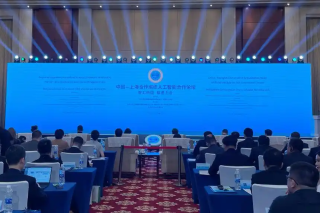Science whiz kids take home prizes
Nine Chinese high school students took the podium at two top-level chemistry and physics olympiads recently.
Four Chinese high school students won gold medals at the 54th International Chemistry Olympiad ending on Monday, while the other five Chinese high school students won gold medals at the 52nd International Physics Olympiad that concluded on Sunday.
The physics event was organized in Switzerland and the chemistry event was organized in Tianjin by Nankai University.
All delegations had the option to either solve the challenges in their home country or organize an on-site event with other delegations.
Leaders of the Chinese team for the physics competition, Song Feng and Wang Jin, who are a professor and a senior experimentalist respectively at the School of Physics at Nankai University, said the educational foundation for Chinese middle schools is solid and the country has a good reputation for physics education.
Pei Jian, a professor with the College of Chemistry and Molecular Engineering at Peking University, who has led the Chinese team at the global contest for 20 years, said, "China has taken the global lead in chemistry education, and it has an optimized contest system, which benefits the country in fostering leading personnel in the field."
He noted that China introduced the "double reduction" policy to reduce the pressures on students from primary to middle schools, and so the challenges of major examinations including the gaokao, the national college entrance examination, are expected to become "easier "than before.
"But via various contests, it helps the country scour for talented students who are keenly interested in chemistry and boost their interests," he noted.
Fu Zhou, a third-year-student at Hangzhou Xuejun High School, a gold medalist and a member of the team led by Pei, told China Daily that he didn't find the olympiad this year "too challenging" for him and his counterparts and it was not surprising to see many Chinese faces at the online event.
Zhang Xinxing, a professor of the College of Chemistry at Nankai University and a member of the chemistry competitions scientific committee, said: "It's a shared family tradition among Asian families that Asian mothers are keenly focused on fostering children's study capability, especially in STEM, namely science, technology, engineering and mathematics. When I was studying in the United States to achieve my PhD, I had many counterparts who were Asian."
Zhang said this year the scientific committee created nine theoretical problems, expecting the young students to "understand the importance of chemistry to humanity and know more about ancient and modern chemistry in China".
He noted the event was first held on the Chinese mainland 27 years ago, so in this session the scientists expected the young contestants to learn about Chinese scientists' special devotion to chemistry so they could better understand China's chemistry development.
No 'tiger mother'
The gold medalists said their parents adopted quite traditional ways in inspiring their studies but were never "tiger mothers".
They enjoy studying as well as a leisurely lifestyle and parental love, they said.
Fu said he found "being in a happy mood" is essential to studying and competing.
Xu Guowei, a second-year student at the High School Attached to Nanjing Normal University, who achieved the highest score during the contest, said, "I appreciate the beauty of physics but I don't immerse myself in exercises."
Yang Mingxuan, a third-year student at the school, who achieved the highest score in his experiment, said he appreciated the National Demonstration Center for Experimental Physics Education, Nankai University, which gave him an outlook on how to experiment and "a room for my growth".

Copyright ©
Tianjin Municipal Government. All rights reserved. Presented by China Daily.
京ICP备13028878号-35



